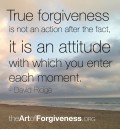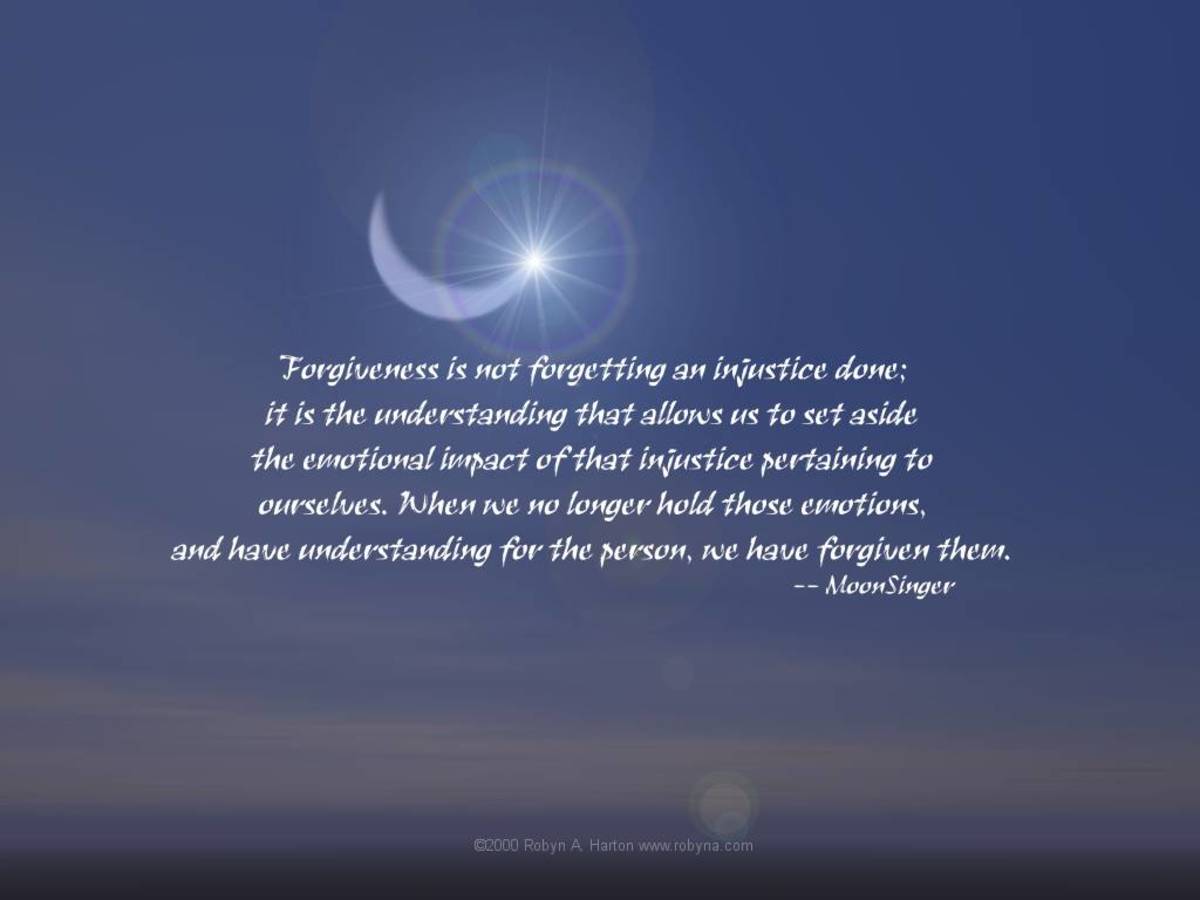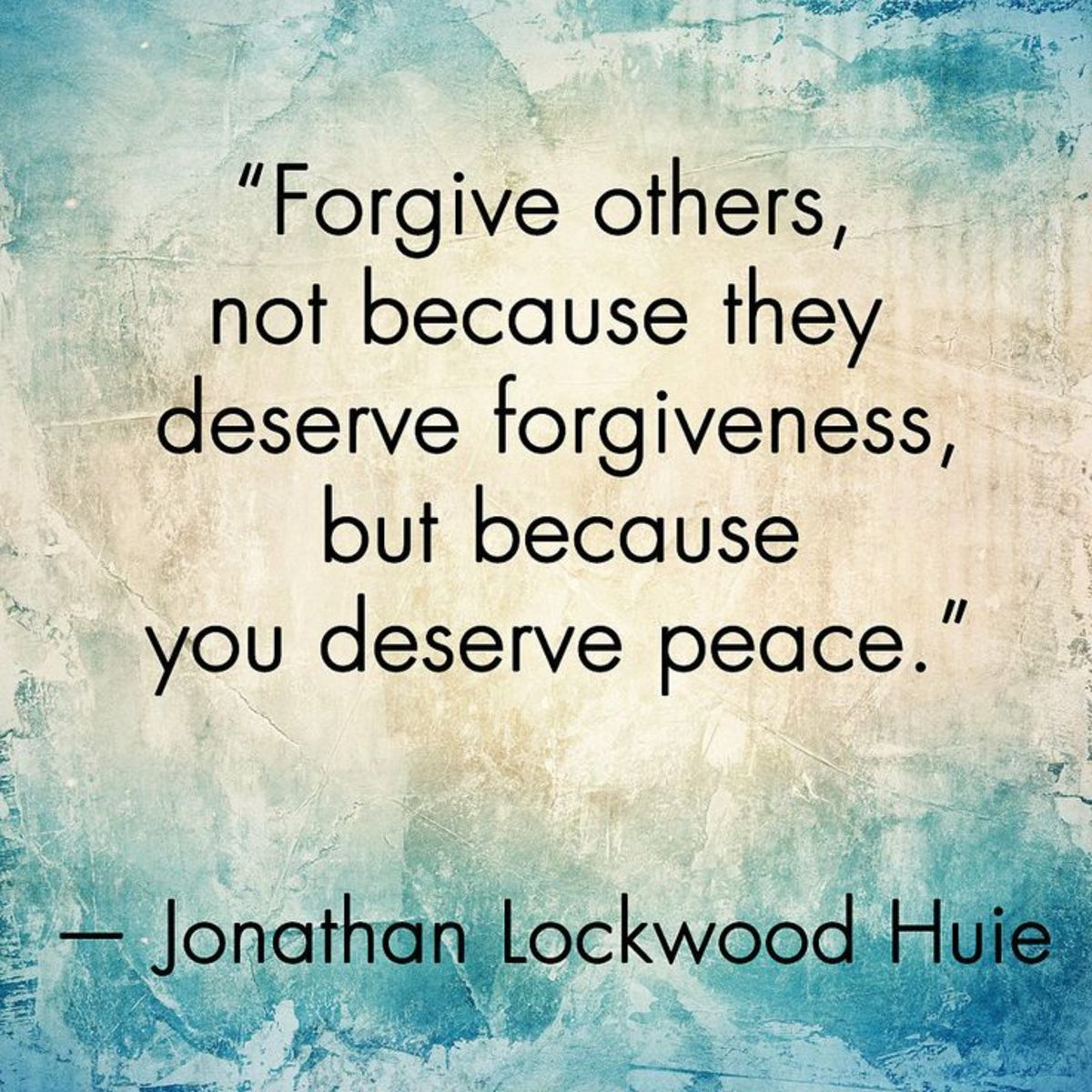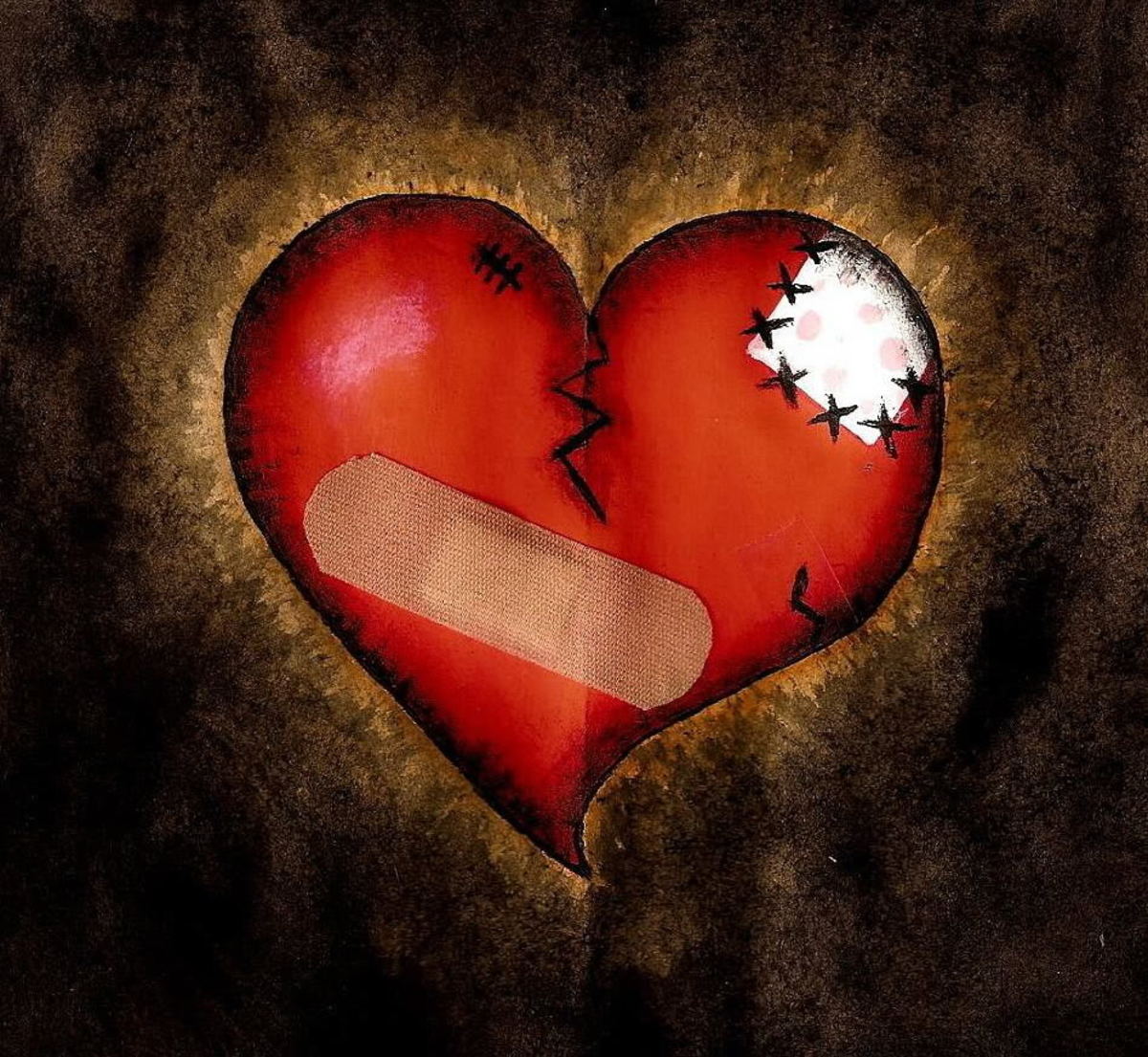What is the best method to forgiving some one that hurt you very badly?

First, You Need to Understand Forgiveness
Forgiving others may sound like the right thing for you to do. Although it sounds good, by ‘looking for the one best method to forgive’, you may be setting yourself up for some serious hurt. Before you take off and attempt forgiving things, you will need to be clear on what can be forgiven and what can not be forgiven. Confusing the two can bring more heartache than relief.
First, you can only forgive the person. You are not forgiving what they did that brought on the hurt. When you try to forgive the ‘act’ you are playing god. Besides playing god, the offender may view your ‘forgiving’ of what they did as condoning or approving what they did. What the offender did may be morally, ethically or criminally wrong. Those are issues that will still need to be dealt with and resolved, yet it may be well beyond what yourself to deal with those matters. You can not condone their actions, neither is it up to you to punish them for those actions either. When you forgive, you let go of any right that you had to punish them yourself. In cases such as abuse, you choose to forgive the person, yet allow the courts and law to deal with the wrong that has been inflicted. The courts do have the power to deal with the offending act or offense. Allowing the offender to face the consequences of their actions does not mean that you did not forgive them.
Bear in mind that forgiveness is letting go of your desire for revenge/paybacks. It involves emotional and spiritual release. Forgiveness does not short-circuit the natural cause and effect laws of the universe or the laws of the courts. Your forgiving them is a separate issue from the legal issues involved with what they did.
When you forgive the person, you will be faced with the choice of whether or not you want to be in back in relationship with them. With some offenses, you may choose to no longer be in relationship. That does not mean that they are not forgiven, it means that you are choosing to no longer be in relationship with them. You are choosing not to expose yourself to their hurt again. Some offenders may claim that you have not forgiven them, since you choose to have nothing to do with them anymore. You do not have to be with them to prove that you forgave them.
Forgiveness is also a process. You may need to forgive the offender many times. It is not that your forgiveness was flawed, it is more a matter that memories and emotions flare up and remind you of the hurt. You will have to make a conscious choice to ‘let go’. The assumption that forgiveness is a one time event is misleading. With serious hurts, you may have to spend some time dealing with the hurt before you are ready to forgive. Attempting to forgive the offender before you have worked through the hurt often leads to incomplete forgiveness. You can only forgive to the degree that you have worked through the issues yourself. If you have not worked through the hurt, you are not ready to forgive the offender. Consider and work through the hurt before you try to forgive. That hurt can trigger recall of the event in your mind and in your emotions.
It is also important to realize that forgiveness is about you. It is about you letting go of the hurt in order to see the offender without distortion. It is not about making the offender feel better. The offender is often oblivious as to whether or not you have forgiven them. Yes, they may sense a barrier, but they often do not hurt more or less based on your forgiving them. When you forgive, the tensions will likely disappear. Although the tensions disappear, it does not remove the hurt or the pain associated with it. I mention this, because you may be one of those who assume your forgiving or not forgiving has some bearing on the pain. Those who do not forgive often imagine that their choice to not forgive magically pains the offender. It does not. Thinking that it does is ‘magical’ thinking more akin to casting spells than it is to forgiveness.
The closer the offender is to you, the more pain you will likely feel. I have found that there is a relationship between the level of pain and the closeness or importance of the offending party. This means that you are most vulnerable to your spouse, your children and your family. They may or may not have intended to hurt you. When you forgive, you will need to forgo the intention piece. Intentional hurts from loved ones are often more challenging than the non-intentional ones. Rather than get caught up in whether or not it was intentional, your focus needs to be on letting go. You can drive yourself nuts trying to figure out intentions and the why behind every hurt.








